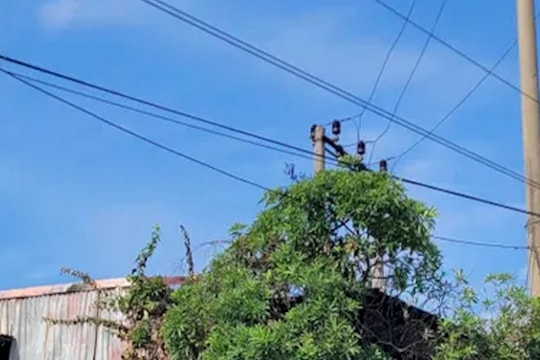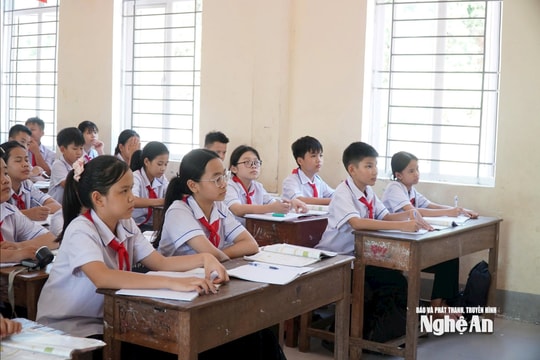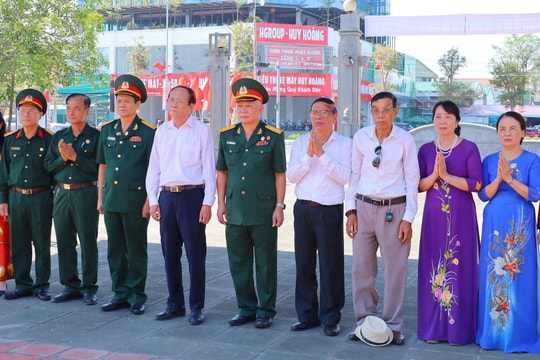Two families in Nghe An have 5 brothers who are involved in revolutionary activities.
(Baonghean.vn) - Since the birth of communist organizations and the Communist Party of Vietnam, in Nghe An there were many families with many members participating in revolutionary activities. There were families with 5 siblings participating in the revolutionary struggle, were captured and imprisoned by the enemy.
Story in Nhan Hau village
Coming to Nam Son commune (Do Luong), we were told by the locals about the example of Mr. Nguyen Van Nhieu's family (also known as Nguyen Van Hai) in Nhan Hau village, who had 5 children who participated in revolutionary activities, of which 4 were recognized as revolutionary veterans. Learning from the work "History of Nam Son Commune Party Committee" and the Nguyen Van family genealogy, we learned a little information about this rather special family.
Accordingly, Mr. Nguyen Van Nhieu passed the Baccalaureate exam in 1906 and was appointed to the position of Bang Ta, but he did not accept. Mr. Nhieu and his wife had 5 children who all studied well, passed the exams, and participated in activities and contributed to the revolutionary movement in their homeland.
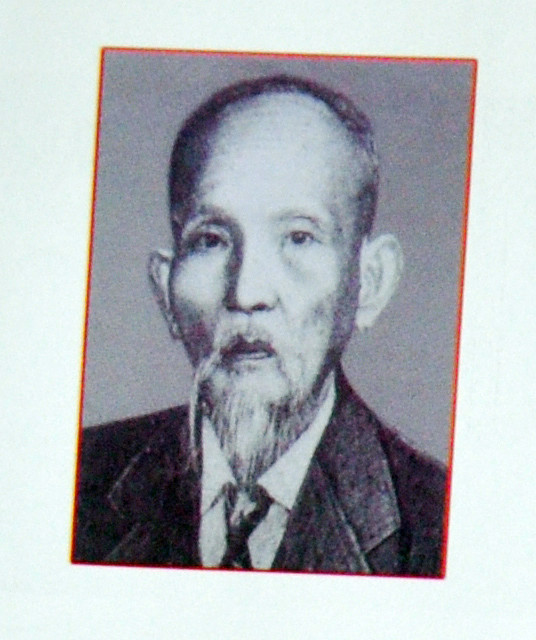 |
| Mr. Nguyen Van Quy was recognized as a revolutionary veteran after his death. Photo courtesy |
The eldest son, Nguyen Van Quy (born 1887), took the exam and passed the Tam Truong exam in the 3rd year of Khai Dinh (1918); in the 3rd year of Bao Dai (1927), he was appointed as an official in Cat Ngan. In 1929, he was suspected of participating in the communist movement and was sentenced to 5 years in prison. After his prison term ended, he returned to his hometown to continue his activities.
Mr. Nguyen Van Quy's younger brother, Nguyen Van Chuyen (born 1889), passed the Baccalaureate exam in the 8th year of Thanh Thai (1906). Following in his brother's footsteps, Mr. Chuyen did not become an official but opened a class to teach and participated in local revolutionary activities. Later, Mr. Nguyen Van Chuyen was recognized by the Party and the State as a revolutionary veteran.
The third son of Mr. Nguyen Van Nhieu, Mr. Nguyen Van Luyen (born in 1908), was a young man full of enthusiasm, had progressive thoughts and stood up with the local people to fight against high taxes and duties. Enlightened early on in the spirit of patriotism and revolution, in 1925, Nguyen Van Luyen went abroad to work in Thailand.
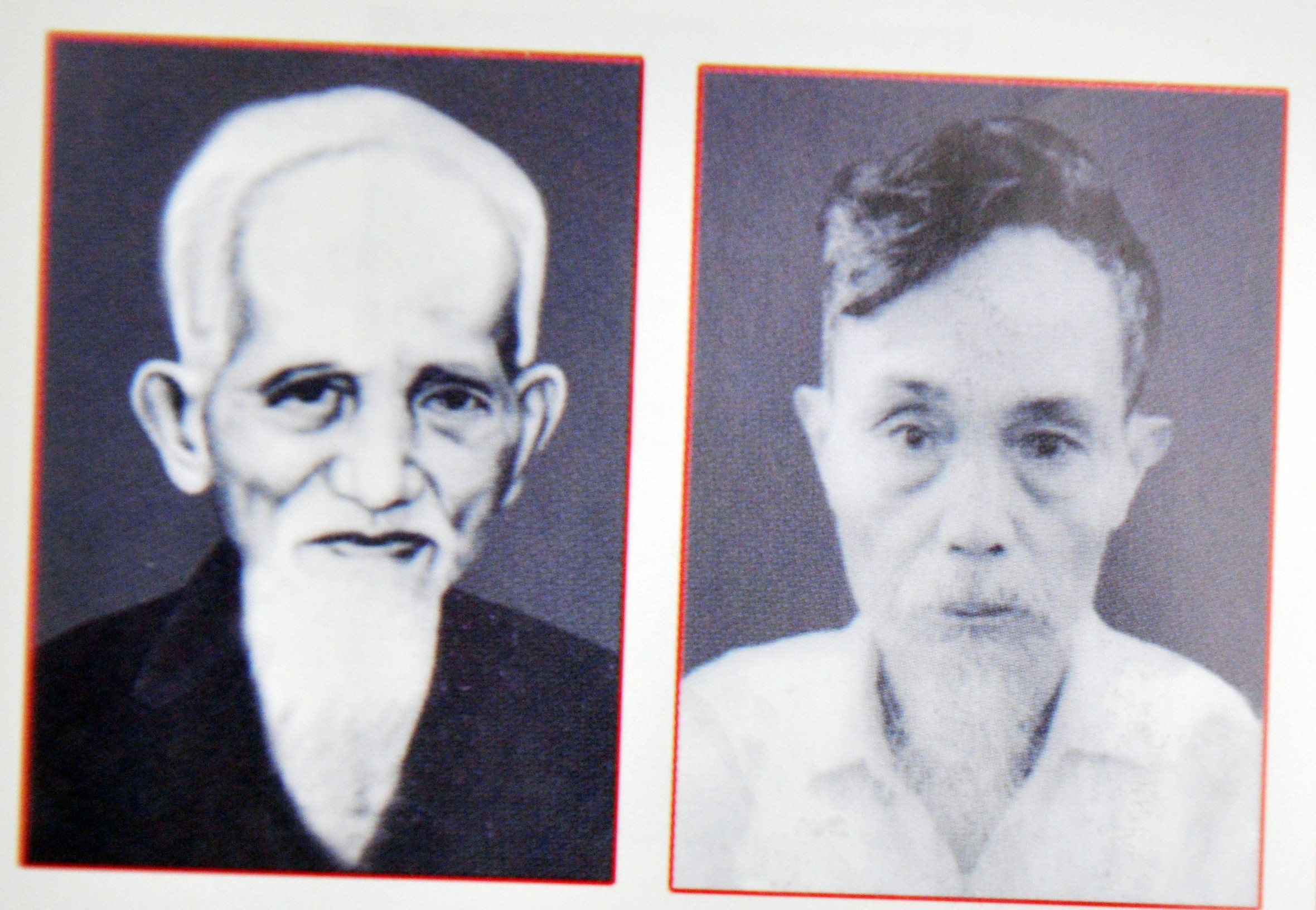 |
| Mr. Nguyen Van Luyen and Nguyen Van Chuyen were recognized as revolutionary veterans while they were still alive. Photo courtesy |
The assigned task was to both study politics and mobilize overseas Vietnamese in Thailand to develop the economy, creating a solid foundation for our revolutionary base. In 1931, Mr. Nguyen Van Luyen was admitted to the Indochinese Communist Party. A few years later, he was sent back to his hometown to continue his activities, participating in leading the August 1945 General Uprising in the locality.
After the revolution succeeded, Mr. Nguyen Van Luyen continued to work in the cooperative building movement, was recognized as a revolutionary veteran and passed away in 1991. Currently, the Nghe Tinh Soviet Museum is preserving the leather briefcase that comrade Nguyen Van Luyen used to hold documents during his revolutionary activities in Thailand.
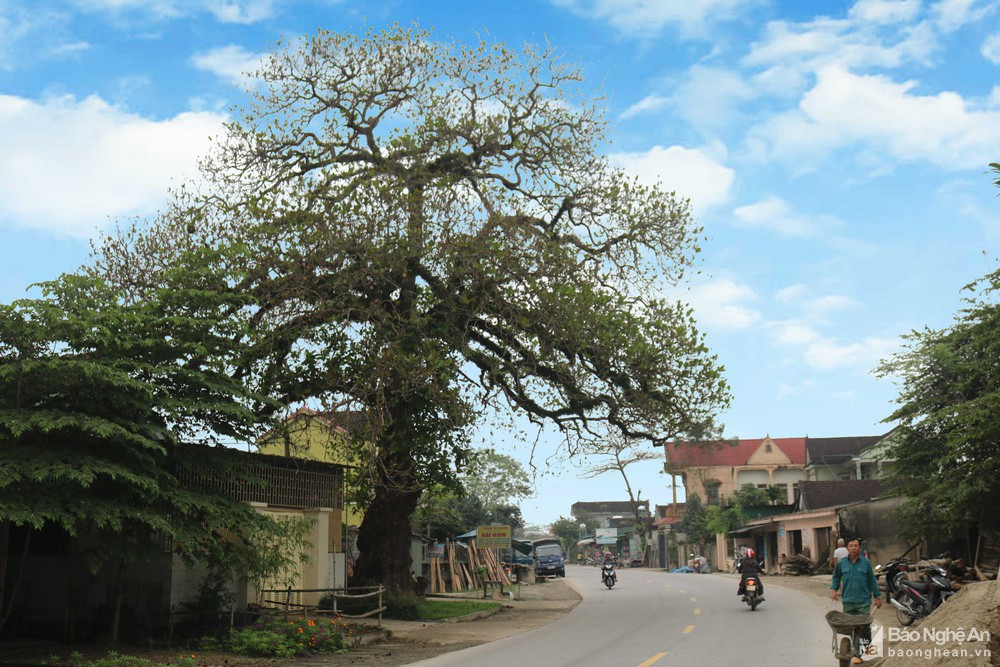 |
| Ancient banyan tree in Nhan Hau village, Nam Son commune (Do Luong) - where the red hammer and sickle flag was hung during the Nghe Tinh Soviet movement (1930 - 1931). Photo: Huy Thu |
Continuing his family tradition, Mr. Nguyen Van Uyen (born 1911) joined revolutionary activities early. Participating in the Nghe Tinh Soviet movement, he was captured by the enemy in 1930, exiled to Quang Ngai, and died in prison at the age of 20. Mr. Uyen was recognized as a martyr 30-31 and a veteran revolutionary cadre.
Following in the footsteps of his brothers, the youngest brother, Nguyen Van Thanh (born in 1912), also joined the revolutionary struggle early and was arrested at the same time as his fourth brother (Nguyen Van Uyen). Mr. Thanh was detained in Vinh Prison, and after completing his prison term, returned to his hometown for a few days before passing away when he was not yet 19 years old.
Worthy of being a Cat Ngan person
4 years ago (2016), having the opportunity to go to Cat Van commune (Thanh Chuong) to attend the 110th anniversary of the birth of Mr. Tran Huu Doanh - former Secretary of Thanh Chuong District Party Committee, we truly admired the revolutionary tradition of the family. Because the family of Mr. Tran Huu Hoang (Mr. Doanh's biological father) had 4 children who joined the Party's ranks right from the first days of its establishment.
Mr. Tran Huu Hoang (often called Co Man) and his wife had 5 children (3 boys, 2 girls), including: Tran Thi Dich, Tran Huu Oanh, Tran Thi Tuyet, Tran Huu Doanh and Tran Huu Quan. Among the 5 siblings, Tran Huu Doanh was a good student and passed the entrance exam to Vinh National School. He and his classmates were soon enlightened and participated in the revolutionary struggle.
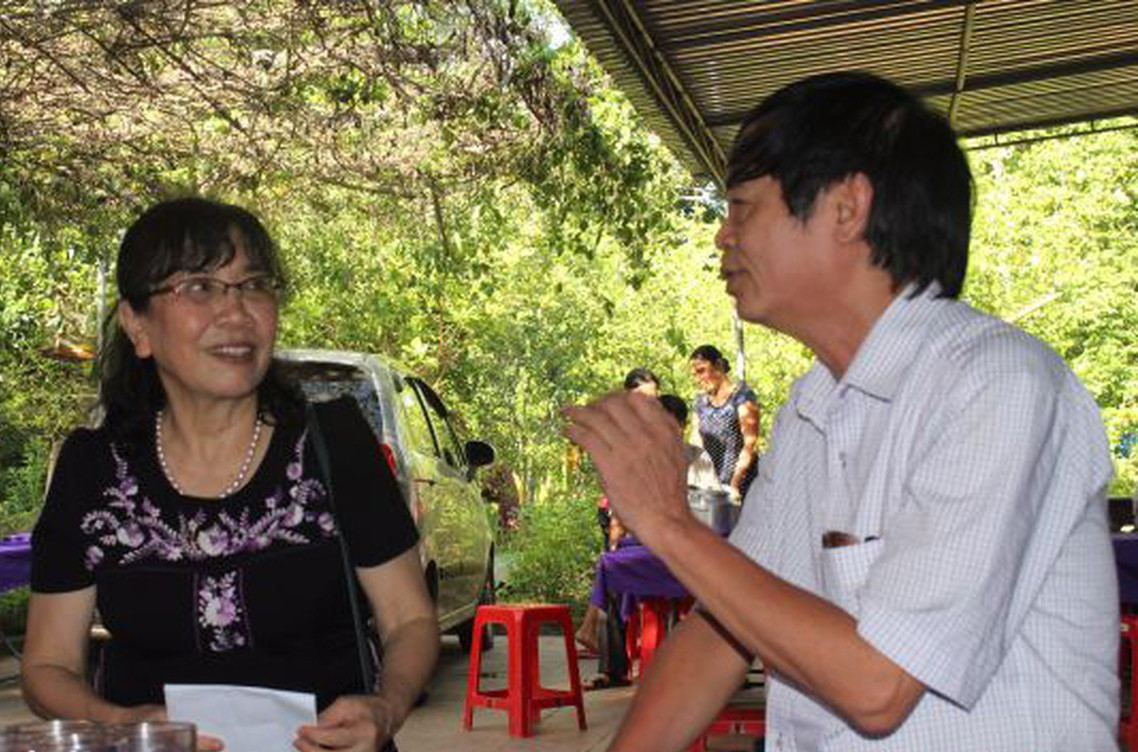 |
| Mrs. Pham Thi Dao (left), daughter-in-law of Mr. Tran Huu Doanh, talks about the revolutionary tradition of her family and her hometown of Cat Van (Thanh Chuong). Photo courtesy of Dao Tuan |
Mr. Doanh, along with his friends Nguyen Tiem (later the first Secretary of Nghe An Provincial Party Committee), Hoang Tran Tham founded the Nghe An Student Union to lead the student movement. When the French colonialists discovered this, they expelled the revolutionary activists from the school.
Tran Huu Doanh returned to his hometown and gathered 30 young people from Cat Ngan commune to establish a Cay Camp in Khe Truong. In November 1929, the Indochina Communist Party cell in Cat Ngan was established, and Mr. Doanh was elected as the cell secretary.
When the Communist Party of Vietnam was born, Mr. Man's family became the base of revolutionary activities, the place where many officials of the Provisional Regional and Provincial Party Committees worked, such as: Nguyen Phong Sac, Le Viet Thuat, Le Xuan Dao, Nguyen Lien, Nguyen Binh... And all 5 children in the family participated in the fight against the French, 4 of them became party members in the years 1930 - 1931.
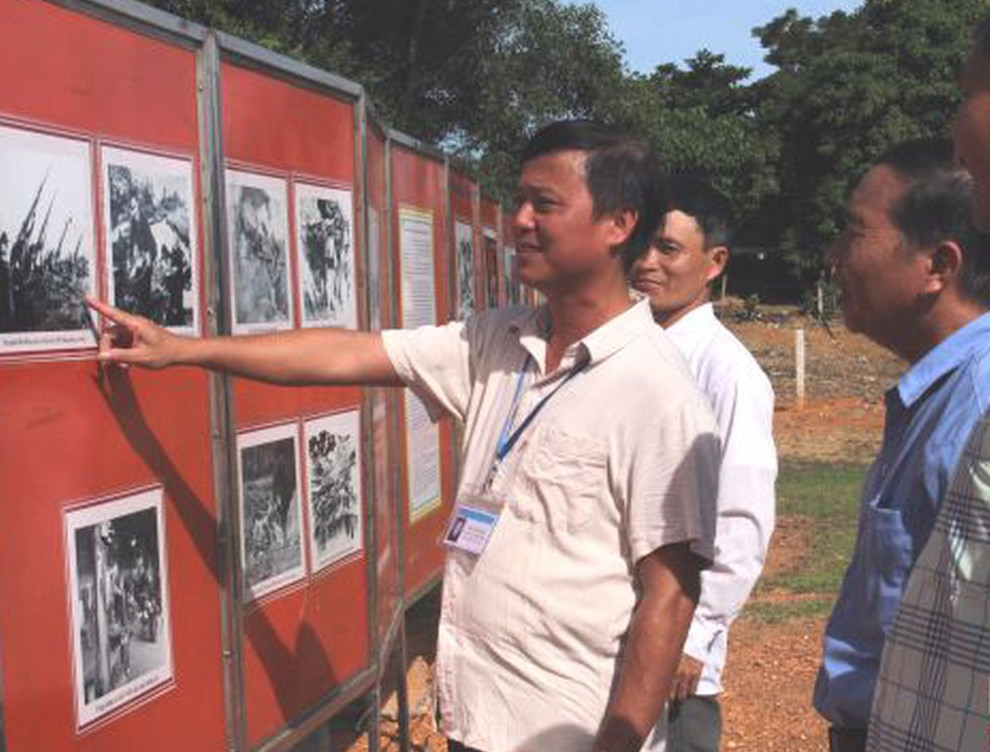 |
| Officials and residents of Cat Van commune (Thanh Chuong) view documents displayed to commemorate the 110th anniversary of Mr. Tran Huu Doanh's birth. Photo: Dao Tuan |
Tran Huu Doanh was one of the first party members of Thanh Chuong district, serving as Secretary of the Cat Ngan branch. Tran Huu Oanh and Tran Huu Quan were in charge of the Red Self-Defense Force. Tran Thi Tuyet was one of the first women of Thanh Chuong district to join the Party, the woman who held the hammer and sickle flag to lead the demonstration of Cat Ngan in the demonstration on September 1, 1930.
After the demonstration on May 1, 1930, the family of Mr. Man was classified as a dangerous group by the French colonialists and they constantly sought to terrorize them. In January 1931, Mr. Tran Huu Doanh was appointed by the Nghe An Provincial Party Committee as Secretary of the Thanh Chuong District Party Committee, and in April 1931 was transferred to the Provincial Party Committee.
In June 1932, Tran Huu Doanh was arrested by the enemy and sentenced to life imprisonment and exiled to Lao Bao Prison. At this time, the two other sons of the late Man, Tran Huu Oanh and Tran Huu Quan, were also sentenced to life imprisonment and exiled to Buon Ma Thuot Prison. Mrs. Tran Thi Tuyet was also arrested in Do Luong and sentenced to 15 years in prison.
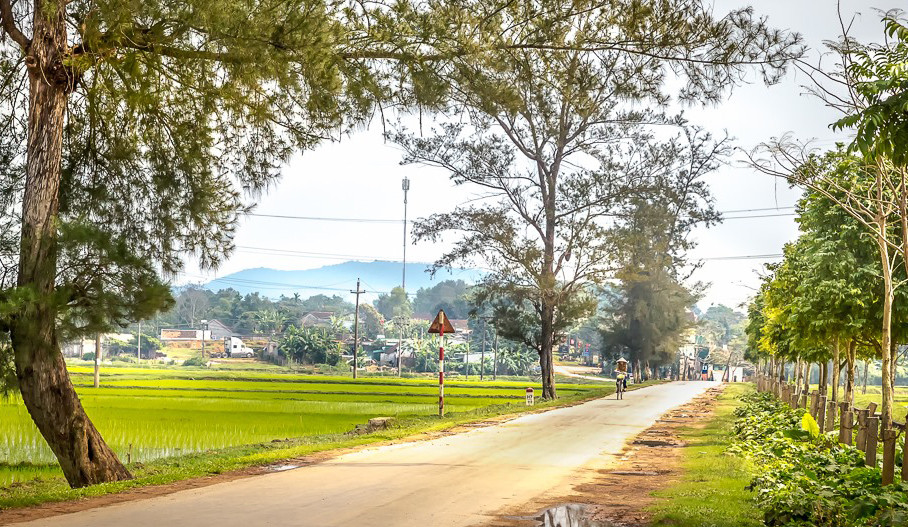 |
| A corner of Cat Van commune (Thanh Chuong) today. Photo: Viet Son |
On the night of December 5, 1942, Tran Huu Doanh and some of his comrades escaped from prison and found their way back to their hometown to rebuild the revolutionary base. On April 5, 1945, while on the way from the base in Vinh Giang to Giang Son (Do Luong), due to a clash with a group of French soldiers, he sacrificed his life when the country was about to gain independence.
After the August Revolution of 1945, Mr. Tran Huu Oanh and Mr. Tran Huu Quan escaped from prison and continued to work, participating in protecting and building their homeland. They were veteran revolutionary cadres respected by their comrades and compatriots.
It can be said that Mr. Nguyen Van Nhieu's family and Mr. Tran Huu Hoang's family have contributed to highlighting the patriotic and revolutionary tradition of their homeland Nghe An, contributing to the victory of the revolution, bringing independence, freedom and peace to the country and people...


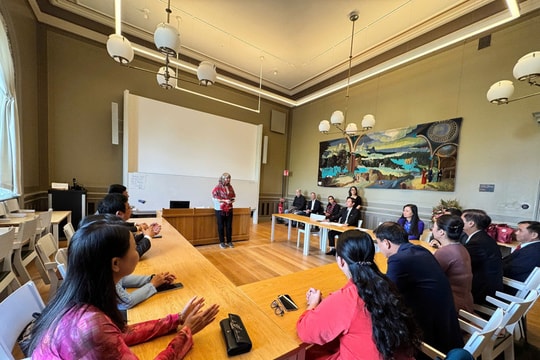
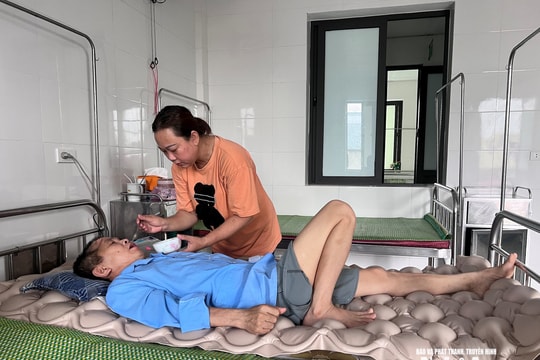
.jpg)
